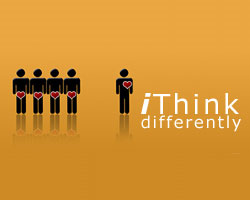Alex Blau, MD, Medical Director at Doximity, is a graduate of the University of California San Francisco School of Medicine and trained in emergency medicine at Stanford Hospital and Clinics. He has been working in the emerging mobile health space since he was a senior medical student, when he founded MediBabble, an iPhone-based medical language interpretation tool now in use by more than 15,000 health care professionals. In addition, Dr. Blau has worked as a healthcare journalist, has been published in multiple journals and textbooks on emergency medicine, and has been an invited speaker at national conferences on early stage startups and innovation in healthcare.

The potential is huge; but until very recently, physicians have been largely unable to take full advantage of what these connections have to offer. Specifically, the Health Insurance Portability and Accountability Act (HIPAA) of 1996 prevents doctors from using email or text messaging, much less open platforms like Facebook or Twitter, to communicate about patient care without risk of being fined or fired.
Still, the potential for physician-focused, web-based networks is huge, and HIPAA-compliant tools and sites have indeed started to take shape and populate.
Healthcare itself has been (often rightly) criticized as slow to change. In fact, Dr. Leslie Saxon recently published an insightful articleon why the Internet hasn’t yet had any real impact on how medicine is practiced.
But research has shown that as far as technology goes, doctors themselves have proven to be early adopters. Having seen the kinds of conversations that have already begun to take place, I strongly believe that the future of digital medicine will be anchored in these kinds of connections.
Think, for example, of the impact of having a rural doctor in Alaska be able to send pictures of a complicated emergency case to a former classmate now working at a stroke center in Boston — and getting real-time feedback. This is where, in my mind, social networking truly goes from entertaining to life-changing.
With physicians connecting in real time across specialties and beyond the traditional bounds of hospital walls, patients may soon be able to stop worrying about getting access to the right specialist.
Medicine’s brightest minds will be accessible from the remotest spots — on an airplane, at an underserved clinic, or in the thick of a disaster zone. Soon, any doctor with a mobile device will have the resources and reach to pull together a personalized, patient-specific team of experts for any given case. Sometimes, it will take as little as a question to the right expert in a sub-specialty to change the course of treatment for the better. In other instances, more lasting and meaningful collaborations might take shape.
Information itself is poised to travel differently, too. Facebook and Twitter are already showing us how effectively networked communities can transmit important data, and even bring obscure new ideas to the forefront of cultural debate.
For doctors, who have historically relied heavily on sifting through a surfeit of medical journals, this kind of hive-minding can help ensure that the most promising and thought-provoking research or techniques rise to the surface and reach a wider audience. Moreover, by posting, sharing, and commenting on articles and cases within their professional networks, physicians will become more active and engaged participants in the future of medical research and learning.
The existence of these large and overlapping communities of doctors promises to tap a goldmine of public health data. Using discussion threads about symptoms and outbreaks, the spread of infectious disease can be tracked automatically, as can the efficacy and speed of treatment plans. Complications of new therapies, previously unknown risk factors for common diseases, even entirely new disease entities may be identified from increased sharing of data that has until now lived in the filing cabinets and memories of individual physicians.
The social power of networks like Facebook and Twitter to connect, entertain, and enrich our lives is undeniable. It’s time to extend the networking paradigm to healthcare and reap an even more substantive set of rewards.
As a newcomer, Google plus and their unique video conferencing platform offers a ground breaking easy, and inexpensive video conference API (up to ten two way participants and live on air to an unlimited audience presents the opportunity for medical education. On a one to one video hangout the opportunity to do a house call, see a patient for a post op visit, screen complaints and organize your time efficiently. Broadcast a surgical procedure on air with patient permission and some time delay with an expert physician moderator. A prototype broadcast is available,
Live Broadcast Google Hangout Thyroidectomy
Editor’s note: Dr Alex Blau will be one of our distinguished participants in the mHealth webinar on Wed, May 23rd at 1pm EDT. Join Us!







